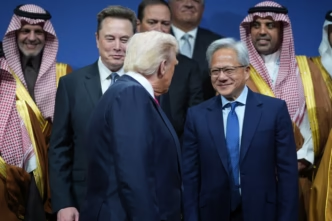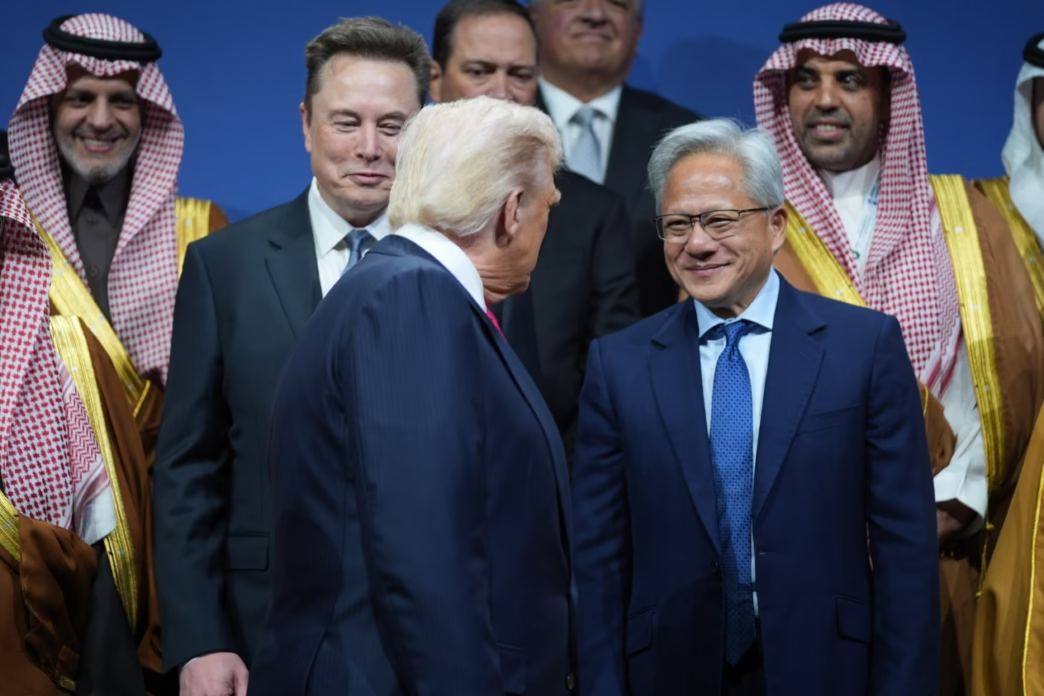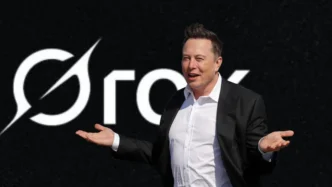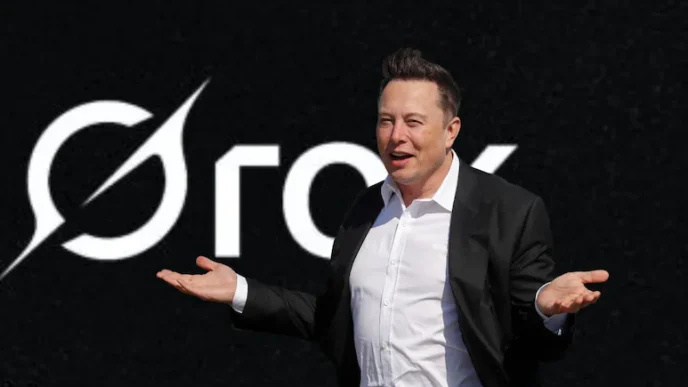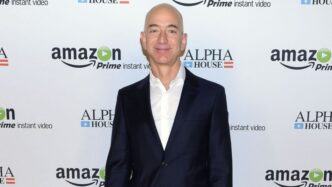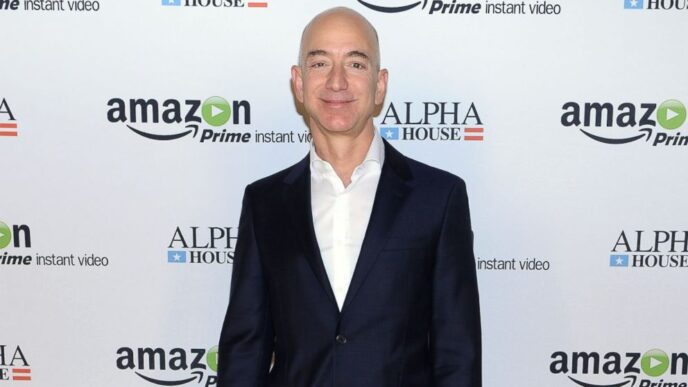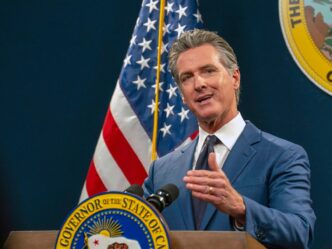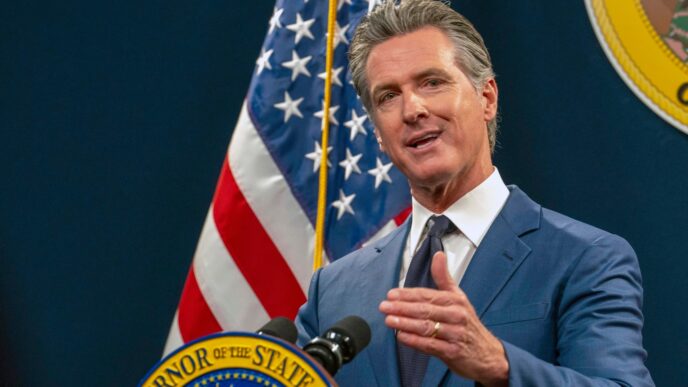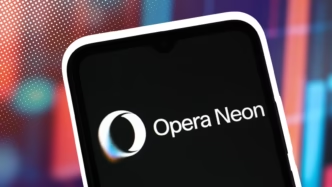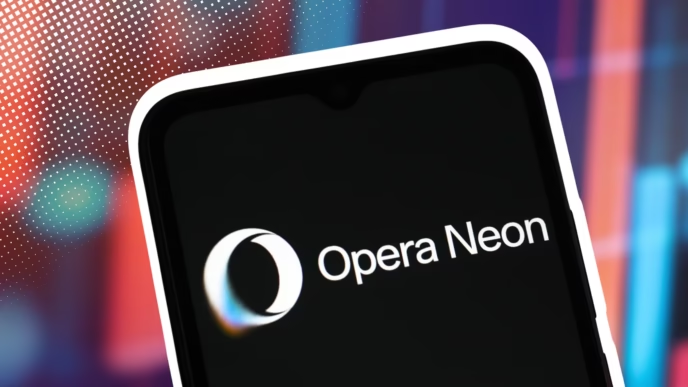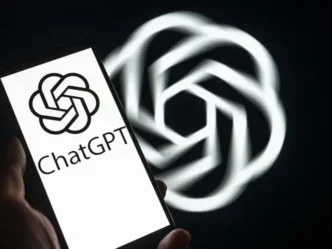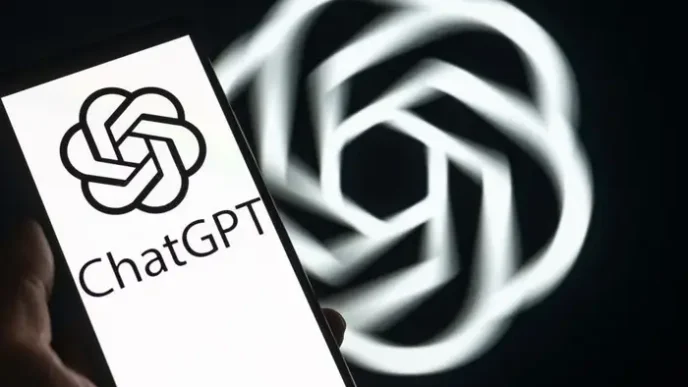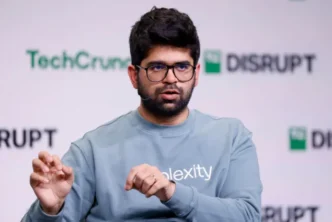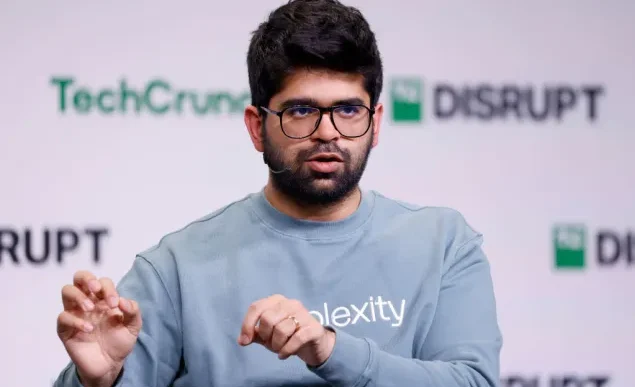Elon Musk has been painting a bold picture of the future, one where work fades away, money loses meaning, and poverty disappears. He shared this sweeping vision at the U.S.-Saudi Investment Forum, sitting beside Nvidia CEO Jensen Huang, and he spoke with the kind of confidence that usually belongs in sci-fi novels. Yet Musk insisted that this future was not fantasy. In his view, it’s where the world is headed as AI moves deeper into every part of life.
He told the audience that as AI and robotics advance, the world will eventually move past the need for currency. It wouldn’t be a sudden shift but something that becomes more obvious as machines handle more tasks and resources become easier to produce.
Elon Musk tried to ground the idea by saying that while power sources like electricity and physical materials will still matter, money itself will stop being central. He pointed to Scottish sci-fi author Iain M. Banks, who created societies built around abundance rather than scarcity, as an example of what this “positive AI future” might resemble.
Elon Musk described a world where work becomes optional, more like a hobby than a necessity. He compared it to gardening, noting that most people don’t grow vegetables because they need to survive. They do it because they enjoy it. He said work would eventually fall into that category too. People could choose to build or create things, and some would still prefer hands-on tasks, even though AI and robots would handle nearly everything.
Over the past few months, Musk has repeated versions of this idea in different settings. He has linked the coming AI wave to the end of poverty, saying that robots like Tesla’s Optimus will eventually take over labor in a way that changes the structure of society. At a recent Tesla investor meeting, he mentioned that while people often talk about solving global poverty or improving healthcare, those goals rely on a kind of productivity that only advanced automation can provide. He suggested that AI and robotics are the only paths to limitless abundance.
During his conversation at the forum, he also revisited comments he made on Joe Rogan’s podcast. He told Rogan that when AI reaches a level where human labor is no longer required, governments will need to step in with a universal income.
But he didn’t think a basic income would be enough. Instead, he argued that society would need a “universal high income,” one that gives people access to whatever products and services they want. He emphasized that this positive scenario comes with challenges and that the shift to an AI-driven society won’t be smooth.
He warned that there could be significant disruption before things stabilize.
Elon Musk vision for the future with AI is massive and dramatic, but he shared these thoughts casually, even playfully. When he began talking about how money might lose its meaning, he turned to Huang with a grin and roasted him about Nvidia’s earnings call happening later that day. As if to drive home the point about currency becoming irrelevant, Huang joked right back. The moment ended with both men raising their bottles of Acqua Panna and clinking them together.
Even in this light moment, Musk’s message stayed clear. He believes that AI will reshape nearly everything people consider normal today. Jobs as we know them may become hobbies. Currency might give way to a system driven by abundance rather than scarcity. Governments may eventually distribute a guaranteed income that lets people focus on creativity, relationships, or whatever they enjoy. Musk has often said that AI is the most powerful technology ever created, and he sees it not only transforming industries, but rewriting the structure of society itself.
Still, Elon Musk hasn’t ignored the downsides. He has said several times that the path to this future comes with turbulence. As AI replaces traditional work, people may struggle with identity, purpose, and stability. Entire industries will change at speeds they are not prepared for. But Musk often insists that if the transition is handled carefully, the long-term outcome could be the most peaceful and abundant era in human history.
This idea fits into Musk’s larger narrative about the role of technology. Whether he talks about electric cars, space travel, or neural interfaces, he often returns to one theme: technology should raise the quality of life for everyone. And in his view, robots and AI will play the biggest role. Musk believes that as companies like Tesla build more advanced systems, society will reach a tipping point where scarcity fades and opportunity expands.
Many people disagree with Musk’s view or say he glosses over the challenges. But he remains convinced that this shift is inevitable. He believes the world is heading into a phase where machines become the engines of productivity and humans reclaim their time. In that scenario, people won’t need to work to survive. They’ll work because they want to. They’ll create, play, explore, and build new things simply because they can.
For Musk, this isn’t an economic argument as much as it is a philosophical one. He imagines a world where the idea of “earning a living” becomes outdated. Instead of competing for resources, society would be defined by creativity and exploration. Even though he acknowledges the trauma that might come with such a transition, he insists that the long-term future is brighter than most people think.
As the forum wrapped up, the room felt a mix of amusement, curiosity, and disbelief. Musk and Huang returned to their lighthearted exchange about currency being irrelevant, but the underlying message stayed with the crowd. Musk believes the future will be shaped not just by technology, but by a massive shift in how people understand meaning, purpose, and value.
And in his version of that future, AI doesn’t just change the world. It rewrites the rules entirely.
